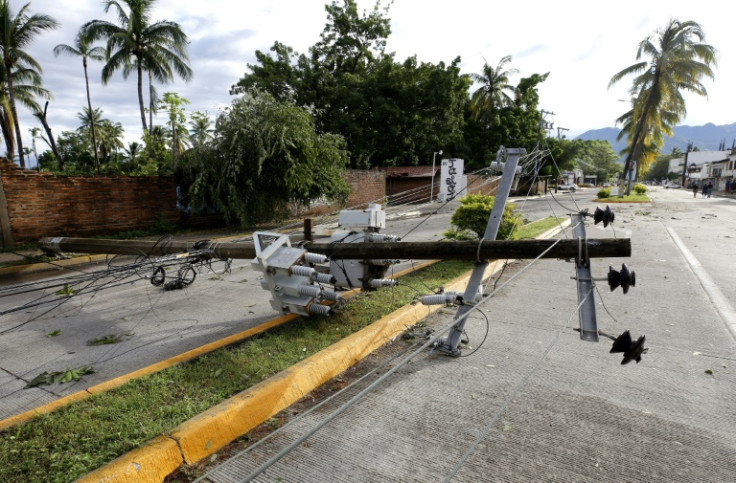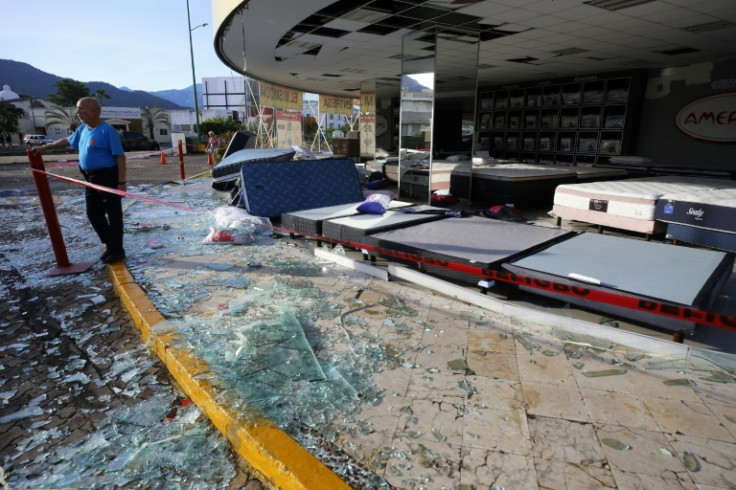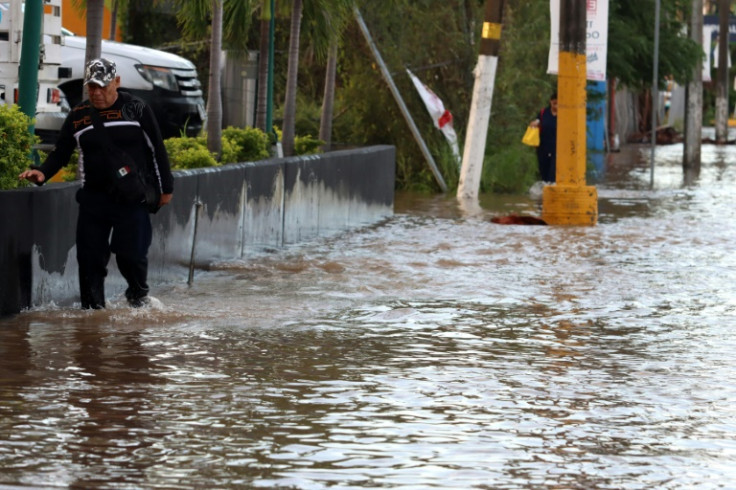
Hurricane Lidia left at least two people dead in Mexico after making landfall as a powerful Category 4 storm, causing flooding, damage and blocked roads before dissipating, authorities said Wednesday.
Strong winds shattered storefront glass and toppled trees and utility poles in the popular Pacific coast beach resort of Puerto Vallarta.
One person died trying to drive a truck through an overflowing stream in the western state of Jalisco, while another motorist was killed by a falling tree in neighboring Nayarit state, officials said.
Lidia came ashore Tuesday south of Puerto Vallarta as an "extremely dangerous" hurricane, packing maximum sustained winds of around 140 miles (220 kilometers) per hour, the US National Hurricane Center (NHC) said.
Residents inspected damage and began cleaning up after what 21-year-old student Hannia Curiel called a "horrible" night.
"In front of my house there's a garden with palm trees and they were moving and bending a lot in the wind. Branches were falling. Tiles and things started to fly," she said.
"Right now we have no power, no signal, nothing," she added.
The storm had quickly intensified as it approached the coast, reaching the second-highest category on the five-step Saffir-Simpson scale.
Lidia rapidly lost strength as it moved inland over western Mexico, where its remnants continued to bring flooding and heavy rain, the NHC said early Wednesday.
Ahead of its arrival the government deployed around 6,000 members of the armed forces to help residents, according to President Andres Manuel Lopez Obrador, who urged people to take shelter.
In Puerto Vallarta -- a major destination for Mexican and foreign tourists -- shopkeepers earlier boarded up windows and piled up sandbags in case of flooding.
School classes were suspended, businesses closed early and most residents waited out the storm at home or in shelters opened by the authorities.
Even so, the strength of the storm took some residents by surprise.
"We didn't expect it to be so intense," said Jorge Reyes, 56-year-old security guard.
"We saw objects flying -- tiles from buildings -- and palm trees completely bent," he added.
Hurricanes hit Mexico every year on both its Pacific and Atlantic coasts, usually between May and November.
Scientists have warned that storms are becoming more powerful as the world gets warmer with climate change.






